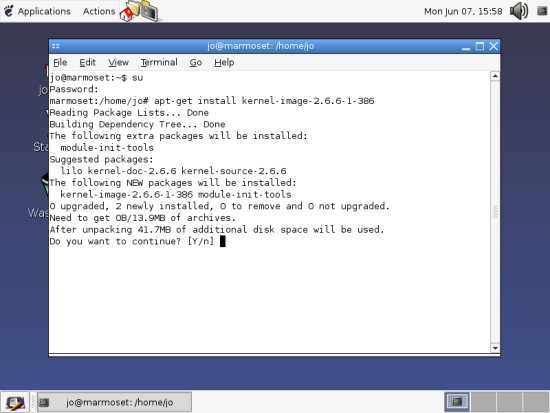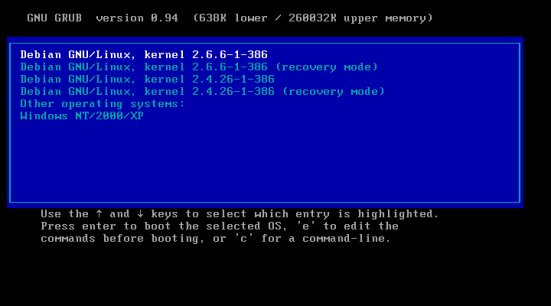Updating the kernel
OK, let's get things started. First of all, we're going to update our system to use the latest version of the Linux kernel (which was 2.6.6 at original time of writing, 2.6.8 currently). The 2.6 series was recently released, delivering up to 50% speed gains in many scenarios. Unless you had to take special measures when installing your Debian system, you will be running the 2.4.26 kernel, the version from the older 2.4 series which Sarge's installer currently uses. There are a number of good reasons to keep using the 2.4 kernel - but there are many other reasons to update to 2.6. The main reason as far as I'm concerned is it integrates the Advanced Linux Sound Architecture driver, rather than requiring it separately. I'll go further into sound drivers later, but for now, trust me: ALSA is a good thing. The rest of this guide assumes a 2.6 series kernel, but you may be able to fill in the missing parts yourself if you're attracted to the older 2.4So. Updating the core Linux kernel. Is it hard? Actually, no.
apt-get install kernel-image-versionnumber-1-optimisation. You can check the latest kernel version on Kernel.org, for the optimisation use 686 for Intel or k7 for AMD. For example, apt-get install kernel-image-2.6.8-1-686. Wait, reboot, and...
Well that was easy! The GRUB boot menu now lists the latest version at the top. Boot, and you're done. The command uname -a will return information on the currently running kernel.
See? Easy. On a file or web server, you just got a free 50% speed boost. Is the rest this easy? Unfortunately not...











